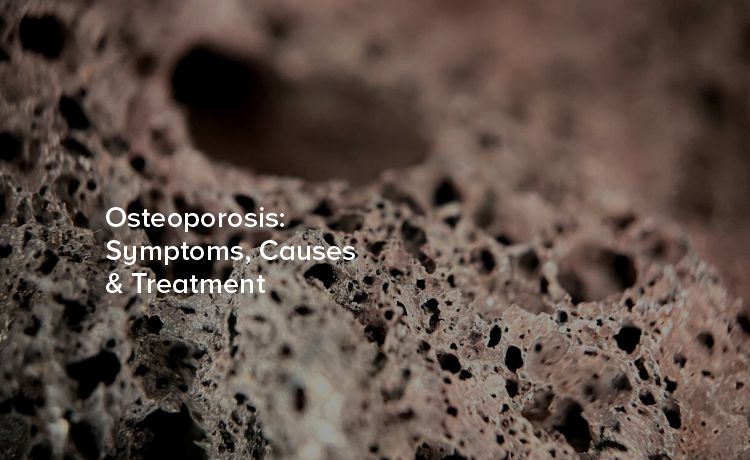
Osteoporosis birth occurs when the body loses too much bone, makes too little bone, or both. This condition leads to weakened bones that are more prone to fracture easily. According to the National Osteoporosis Foundation, millions of people worldwide suffer from osteoporosis, making it a major public health concern.
The risk of further factures increases with each facture; hence it is important to manage osteoporosis as early as possible.
Osteoporosis is often referred to as a “silent disease” because it can progress without any symptoms until a fracture occurs. However, some signs and symptoms can indicate its presence, including:
Understanding the causes and risk factors of osteoporosis is crucial for prevention and management. The disease is primarily associated with changes in bone density and structure. Here are some of the key factors that contribute to the development of osteoporosis:
Age: The risk of osteoporosis increases with age, as bones naturally become thinner and weaker.
Gender: Women are more likely to develop osteoporosis than men, especially postmenopausal women due to a decrease in estrogen levels.
Family history: A family history of osteoporosis or bone fractures may increase your risk.
Body frame size: Men and women with smaller body frames tend to have a higher risk because they might have less bone mass to draw from as they age.
Hormone levels: Lowered sex hormone levels tend to weaken bone. The reduction of estrogen levels at menopause is one of the strongest risk factors for developing osteoporosis.
Dietary factors: Low calcium intake, eating disorders, and gastrointestinal surgery can affect the body’s ability to absorb calcium, leading to weaker bones.
Lifestyle choices: Sedentary lifestyle, excessive alcohol consumption, and tobacco use can increase the risk of osteoporosis.
Certain medications and conditions: Long-term use of corticosteroids and certain medical conditions, such as rheumatoid arthritis premature ovarian failure, can impact bone density.
Early diagnosis of osteoporosis is key to effective treatment and prevention of severe fractures. Bone density tests, such as dual-energy x-ray absorptiometry (DEXA), are commonly used to diagnose osteoporosis.
Treatment for osteoporosis focuses on slowing down or stopping bone density loss, preventing bone fractures, and minimizing the risk of falls that can lead to fractures. Here are some of the primary treatment options:
Medications: Bisphosphonates are the most common medications prescribed for osteoporosis treatment. Other options include monoclonal antibody medications, hormone-related therapy, and selective estrogen receptor modulators (SERMs).
Supplements: Calcium and vitamin D supplements can help maintain bone health. However, it's important to consult with a healthcare provider for the appropriate dosage.
Lifestyle changes: Engaging in regular weight-bearing and muscle-strengthening exercises can help build and maintain bone density. Avoiding tobacco and limiting alcohol intake are also crucial.
Fall prevention: Implementing measures to prevent falls is important for individuals with osteoporosis, as falls can lead to fractures. This can include making home modifications, using assistive devices, and ensuring proper footwear.
Making sure there are no vision problems.
Osteoporosis is a condition that poses significant risks but can be managed with the right approach to treatment and lifestyle changes. Understanding the symptoms, causes, and available treatment options is essential for those at risk or already dealing with osteoporosis you will visit at Citizens hospital for better orthopedics hospital in Hyderabad. Through early diagnosis and proactive management, individuals can maintain their bone health and reduce the risk of fractures, leading to a better quality of life. Citizens Specialty Hospital is the best hospital for rheumatology treatment in Hyderabad.